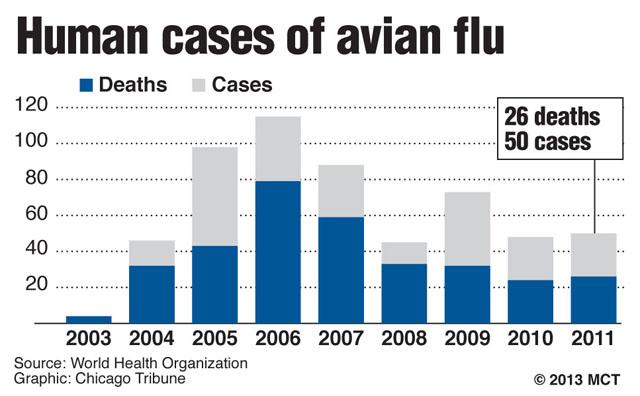You are here
Jordan suspends import of pet birds from Nigeria over bird flu
By Hana Namrouqa - Feb 04,2015 - Last updated at Feb 04,2015
AMMAN — The Ministry of Agriculture on Tuesday suspended the import of pet birds from Nigeria, where cases of bird flu have been reported, according to a government official.
The ministry’s spokesperson, Nimer Haddadin, said veterinary authorities in Nigeria announced on the World Organisation for Animal Health’s website that cases of bird flu were detected.
“In this case, the government bans the import of birds from the infected country. The ban on imports will continue until the infected country is declared free of bird flu,” Haddadin told The Jordan Times.
He said very few pet birds are imported from Nigeria, underscoring that Jordan, which is 90 per cent self-sufficient in poultry, does not import poultry from the African country.
The decision to ban the import of pet birds from Nigeria is one of several measures the ministry has taken to protect the country’s birds from a bird flu outbreak, according to Haddadin.
The Agriculture Ministry and the Royal Society for the Conservation of Nature (RSCN) are testing migratory birds for the avian influenza (AI) virus, while the ministry is inspecting poultry farms across the Kingdom to ensure they are free from bird flu after the disease resurfaced in neighbouring countries, including Israel and Egypt.
Since the outbreaks, Jordan heightened its inspection measures at border crossings, according to the ministry, which said that any bird entering the country must have a certificate showing it is free from disease.
Bird flu or AI is an infectious viral disease of birds (especially wild water fowl such as ducks and geese), often causing no apparent signs of illness, according to the World Health Organisation (WHO). AI viruses can sometimes spread to domestic poultry and cause large-scale outbreaks of serious disease. Some of these AI viruses have also been reported to cross the species barrier and cause disease or subclinical infections in humans and other mammals, according to the WHO website.
Most avian influenza viruses do not infect humans; however some, such as A(H5N1) and A(H7N9), have caused serious infections in people.
Related Articles
The government has banned the import of poultry products from several European countries, where cases of bird flu were reported, an official said on Thursday.
AMMAN — Jordan on Tuesday banned the import of frozen poultry and pet birds from Israel, India and five European countries, following the ou
The government on Sunday banned the import of frozen poultry from Germany, where a case of bird flu was reported, an official said on Thursday.

















